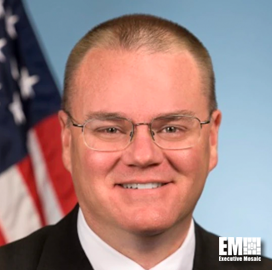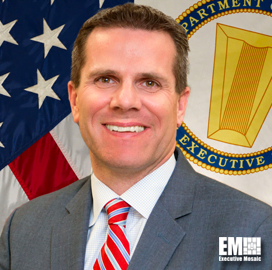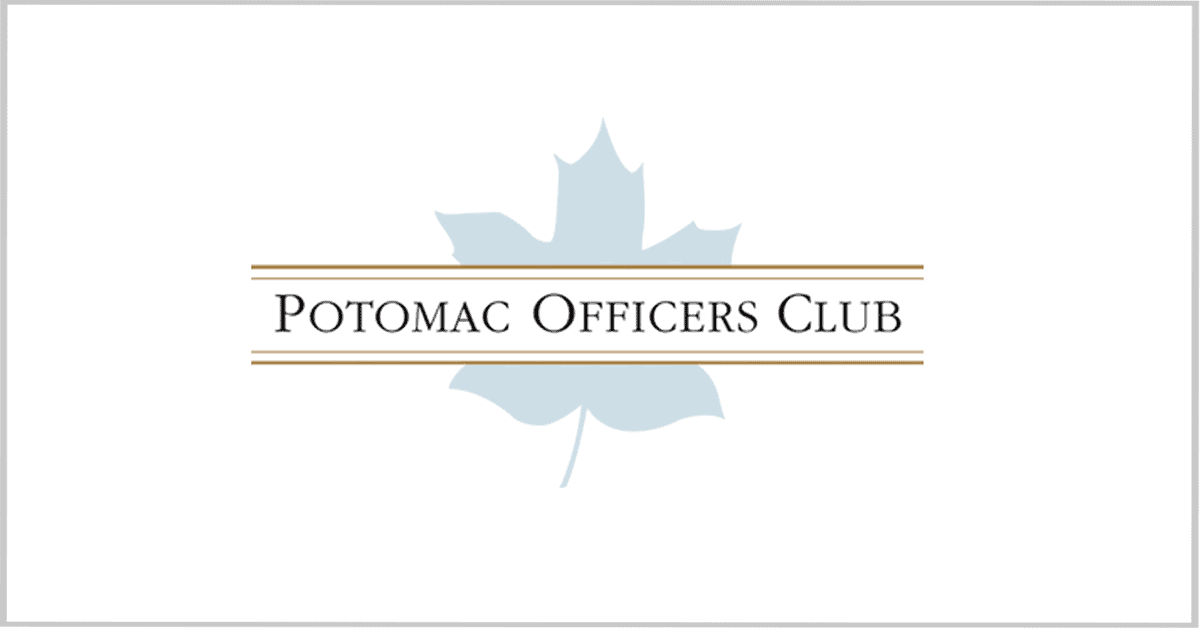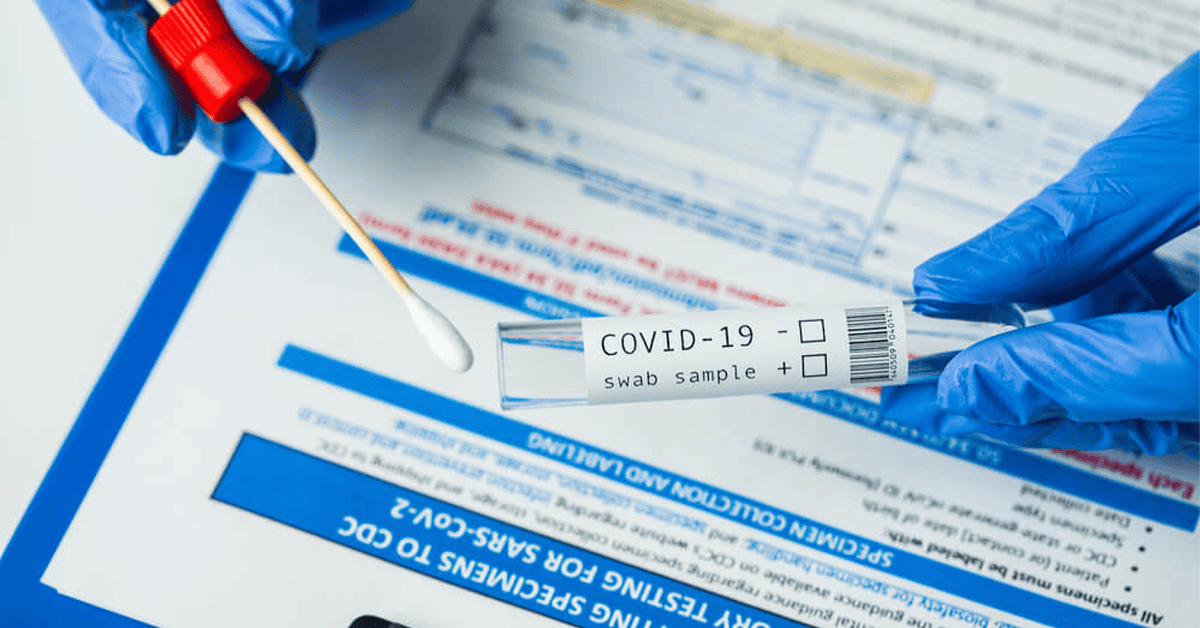During Tuesday’s Fostering Resilient, All-of-Nation Pandemic Response event, hosted by the Potomac Officers Club, notable leaders from the federal health, military and business sectors discussed how we can leverage knowledge gained through early and current COVID-19 response efforts to better prepare the nation and its citizens for future biological threats as the pandemic continues to pose new challenges in public health and national security.
Navy Surgeon General Rear Adm. Bruce Gillingham acted as the event’s keynote speaker and gave the virtual audience an overview of how Navy Medicine’s response strategy has evolved over the past two years and how the service branch leveraged rapid cycle feedback from senior leadership down to the deck plate to adapt to the dynamic behavior of the stealthy COVID-19 virus.
Following Gillingham’s address, Christen Smith, vice president of the health and civilian market at LMI, led a panel discussion with federal agency leaders on how their respective organizations are working to bolster the country’s pandemic resilience strategy. The panelists were Dr. Kevin Bugin, deputy director of the Food and Drug Administration’s Center for Drug Evaluation and Research; Dr. Christian Hassell, principal deputy assistant secretary for preparedness and response and senior science adviser at the HHS; and Dr. Jason Roos, chief operating officer of the HHS ASPR Countermeasures Acceleration Group.
If you missed the final Data-Driven 2021 Series event, visit PotomacOfficersClub.com to view the full Fostering Resilient, All-of-Nation Pandemic Response event on-demand now.

To the panel conversation, Bugin brought his expertise and early perspective of Operation Warp Speed to highlight the notable strides the FDA has made thus far in therapeutics and vaccines since the 2020 onset of COVID-19 in the U.S.
“We saw a lot of interest and enthusiasm from clinical researchers in particular, standing up clinical research programs and conducting thousands of clinical trials,” Dr. Bugin recalled. However, he said many of these trials depleted critical resources and staffing support for healthcare facilities around the country.
Bugin said to remedy these early issues, the FDA prioritized collaboration across government, industry and medicine, which helped to unify disparate response efforts.
He said these partnerships “ensure we’re all working on the same set of priorities as part of the same strategy so that we can really have not just an all-of-government, but an all-of-nation response.”

Then, Hassell spoke on redefining these partnerships through the lens of his public sector experience as principal deputy assistant secretary for pandemic preparedness and response and senior science advisor for HHS.
“I think what we’ve learned more and more over the years is that it needs to be a more fluid model so that we are truly partners,” he said, noting that public-private partnerships need reform.
One area in which there has been significant progress through COVID-19, Dr. Hassell mentioned, is interagency cooperation. “Historically, a lot of the DOE laboratories have had a very competitive atmosphere among them,” he explained. “But that was put aside, to a large extent, to cooperate and form a coalition of DOE labs that could help out.”
Hassell said the challenge now is sustaining that cooperation. “I think it’s going to really fall on the leaders to try to make sure that they instill that [cooperation] from the very top so that it goes throughout the culture of the organizations,” he suggested.

Finally, Roos talked about the critical role of the supply chain in pandemic resilience, and how his organization has worked to strengthen this area.
Roos said the COVID-19 pandemic has “certainly opened our eyes to where we need to shore up the supply chain,” and it has driven the HHS to better employ distribution relationships in supply chain resilience.
He noted that federal agencies are leveraging existing relationships to improve the distribution of vital testing kits, medical supplies and other COVID-19 health needs.
HHS, Roos said, is “not trying to necessarily create new channels for moving drugs and vaccines out to the public but partnering with the distributors” to bolster the country’s supply chain so that it’s “not as fragile as we’ve seen over the last two years.”
To hear each panelist’s insightful comments on COVID-19 response and resilience, visit PotomacOfficersClub.com, where you can view the full Fostering Resilient, All-of-Nation Pandemic Response event on-demand now.

It’s not too late to register for the Potomac Officers Club’s first-ever Digital Currency and National Security Forum on Jan. 27! National Cyber Director Chris Inglis keynotes the event to outline the nation’s critical capability gaps in cybersecurity and how industry can help.
Click here to register for the Digital Currency and National Security Forum on Jan. 27.







